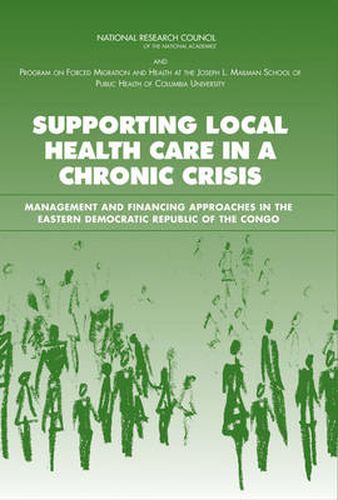Providing medical support to the local population during a chronic crisis is difficult. The crisis in the Democratic Republic of the Congo (DRC), which is characterized by high excess mortality, ongoing armed violence, mass forced displacement, interference by neighboring countries, resource exploitation, asset stripping, and the virtual absence of the state, has led to great poverty and a dearth of funds for the support of the health system. International nongovernmental organizations (NGOs) have stepped in to address the dire humanitarian situation. This study looks at four organizations that support local health care in the eastern DRC: the International Rescue Committee (IRC), Malteser, Medical Emergency Relief International (Merlin), and the Association Regionale d'Approvisionnement en Medicaments Essentiels (ASRAMES). The study makes a comparison of the management and financing approaches of these four organizations by collecting and comparing qualitative and quantitative data on their interaction with the (remaining) local health providers and the local population. Specific objectives of the study are: 1. To identify which management and financing approaches, including the setting of fees, are used by the four NGOs supporting healthcare in the eastern DRC. 2. To determine how these financing approaches affect utilization rates in the health zones supported by the four NGOs. 3. To assess how these utilization rates compare with donor and humanitarian standards. 4. To determine at what level fees must be set to allow for cost recovery or cost sharing in health facilities. 5. To identify the managerial problems confronting the four NGOs. Many epidemiological and public health studies focus on the interaction between health providers and target groups. Supporting Local Health Care in a Chronic Crisis: Management and Financing Approaches in the Eastern Democratic Republic of the Congo concentrates more on how the relationship between the supporting NGOs and the local health system actually develops. In addition, a common aspect of many of the epidemiological and public health studies is the search for an optimal, or at least appropriate, management and financing approach.





